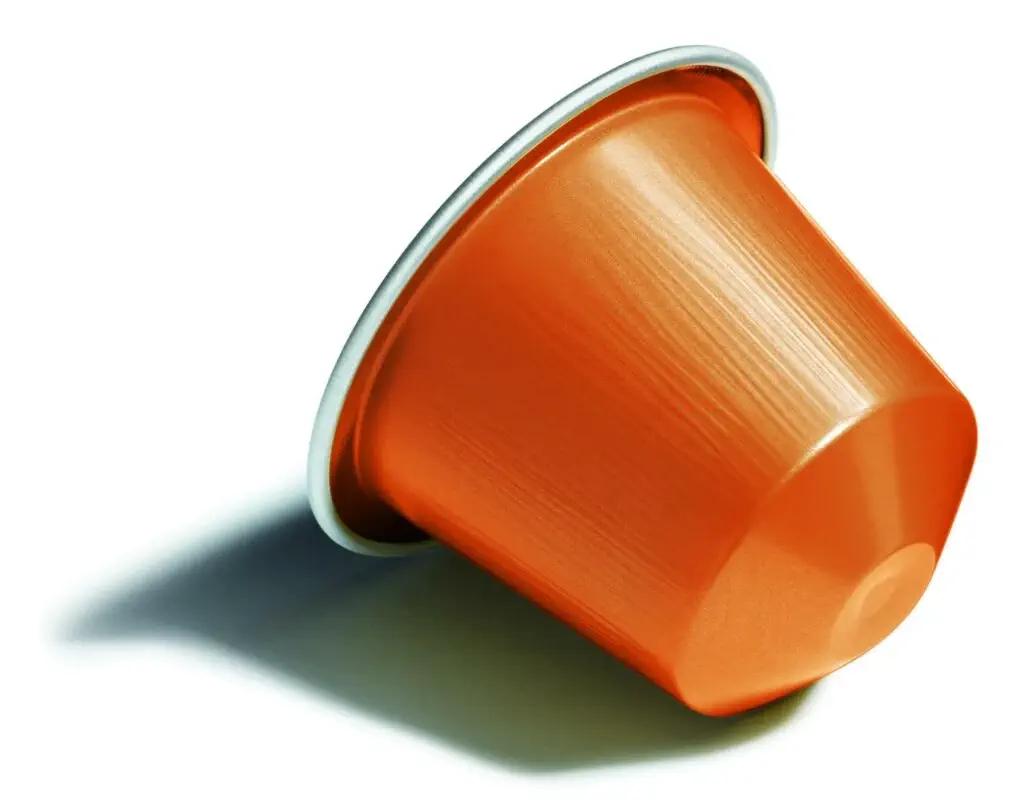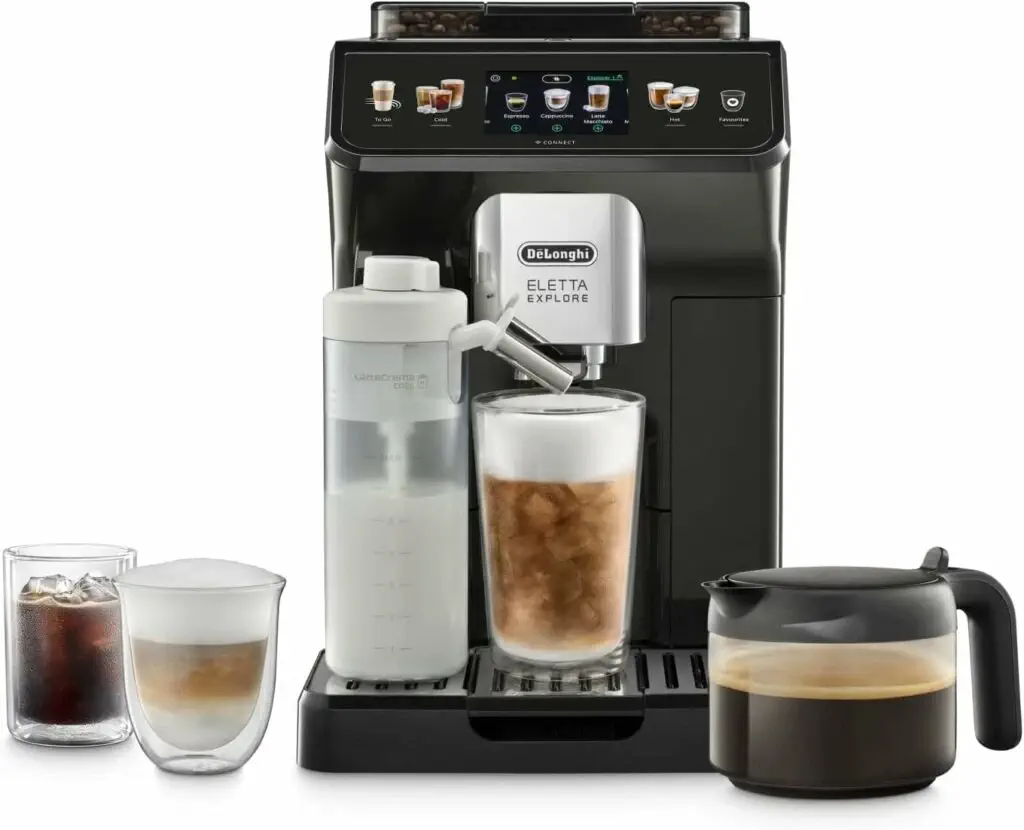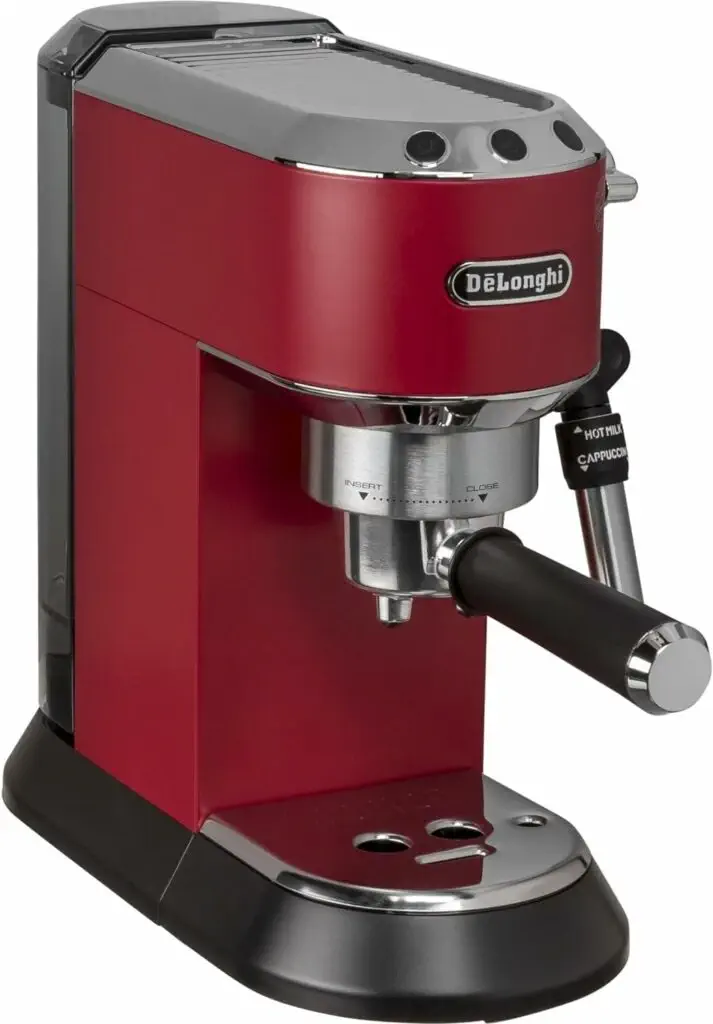Nespresso Capsules: Between Technology and Competition

Discover the fascinating world of Nespresso capsules, which have revolutionized our approach to coffee by combining convenience and technological innovation. This article explores the implications of a landmark lawsuit on the market, while highlighting the characteristics that make Nespresso capsules a unique choice among existing alternatives. Dive into the details of this advancement and decipher the secrets surrounding these small capsules, designed to offer you quality espresso at home.
The rise of Nespresso capsules
Today, we’re addressing a topic that holds a major place in the coffee world: the Nespresso capsule. This innovation, which represents a true commercial triumph, is the work of Nestlé. The company has succeeded in building an empire worth several billion dollars by industrializing espresso consumption, making it as simple to prepare as a microwave meal.
Although more expensive, capsule coffee offers unmatched convenience and ease of preparation, which has allowed it to quickly attract a wide clientele. This occurred despite the fact that coffee enthusiasts can prepare a better quality beverage themselves with a manual or semi-automatic machine.
A revolution in coffee consumption
Nespresso’s success rests on several pillars:
- The standardization of espresso: each capsule guarantees a precise dose of coffee, uniform grinding, and controlled extraction.
- Premium marketing: Nespresso has managed to create an image of luxury and refinement around a daily gesture.
- Ease of use: no need for a grinder, tamper, or barista knowledge, just press a button.
This democratization of espresso has profoundly changed our consumption habits and paved the way for fierce competition.
The Trial and Competition
Nespresso has long sought to protect its technological monopoly through patents on its capsules. But as soon as they expired, numerous competitors emerged, offering compatible capsules at more attractive prices.
A landmark trial pitted Nestlé against several independent manufacturers, raising questions about fair competition and intellectual property. Despite this, Nespresso managed to maintain a strong brand identity, with a loyal customer base attracted by its premium experience.
Reusable Capsules: A Sustainable Alternative
The popularity of reusable capsules has grown stronger, driven by ecological awareness. These solutions allow users to fill their own capsules with freshly ground coffee, reducing waste and offering better customization.
However, they require more time and handling, which goes against the initial promise of absolute simplicity of Nespresso capsules.
Conclusion
Nespresso capsules represent much more than a simple technical innovation: they have redefined the way we consume coffee at home. Between convenience, brand image, and environmental issues, they continue to spark passion and debate.
The question remains: should we favor the ease of capsules or the freedom (and sometimes the quality) of an espresso prepared in the traditional way?
The Impact of the Nespresso-Dualit Trial on Nespresso Capsules
In 2014, the coffee industry witnessed a major event: Nespresso lost a patent lawsuit against Dualit. This court decision opened the door for other companies to produce capsules compatible with Nespresso machines. Theoretically, this event should have created a more balanced competitive environment. Nevertheless, the market has not proven as equitable as hoped because Nespresso capsules contain an often overlooked technology, and that’s what we’re going to explore today.
Nespresso capsules and those produced by other former manufacturers have similarities, but a crucial difference lies in a small silicone seal, exclusive to Nespresso capsules. This seal, crucial for ensuring an optimal experience with many coffee machines, is protected by a patent held by Nespresso, thus offering a notable competitive advantage to their products.
Next, let’s look at the actual content of the capsule: Nespresso coffee uses a particular grind, ensuring quick and uniform extraction, even for light roast coffees. By contrast, competitors’ capsules, often characterized by a coarser grind, can suffer from leaking problems and uneven extraction, affecting the quality of coffee in the cup.
Regarding the reusable capsules, their specific design limits the amount of coffee that can be inserted compared to traditional Nespresso capsules. This variation in the amount of coffee affects the final result in the cup, which may not match the result of original capsules. Nevertheless, for those who wish to continue enjoying their Nespresso machine while minimizing their environmental impact (related to the use of aluminum or plastic capsules, even though Nespresso has created a capsule collection program) and reducing the cost of each coffee, reusable capsules represent an advantageous option.
What alternatives to Nespresso capsule machines?
Nespresso’s marketing has accomplished the feat of transforming an industrial product into a luxury product. Thus, consumers primarily seek two aspects in capsules:
- Convenience (preparing coffee without complications)
- A variety of coffee choices (determined by the assortment of available capsules)
However, there are three interesting alternatives to capsule machines:
- Automatic machines with integrated grinder
- Espresso coffee machines equipped with a pressurized filter or semi-professional
Choosing an automatic machine with integrated grinder
More expensive to purchase but economical per cup (compared to a capsule machine), these machines represent the best choice for those who want to replace their capsule machine while maintaining convenience. Moreover, they offer a much wider range of coffee choices, since you can buy your coffee beans directly. Some machines with integrated grinders are even equipped with a dual reservoir, allowing you to choose between two different types of coffee.
De’Longhi Eletta Explore Coffee Machine
Opt for an espresso machine with pressurized filter
A pressurized filter coffee machine is also an interesting alternative for people looking to make coffee quickly without hassle. One of the best-sellers is the De’Longhi Dedica, which is even upgradeable as it’s possible to replace the 51 mm filter with a professional filter, thus allowing better coffee extraction.
Coffee machines with pressurized filters, common in domestic models, use a specific filter to generate artificial pressure. This design, with its single small outlet, compensates for irregularities in tamping and grinding, producing artificial crema even with lower quality or stale roasted coffees. These machines often operate at higher pressure, around 14 bars, compared to the standard 9 bars of professional espressos. While this feature makes preparation easier for beginners, it can mask the intrinsic quality of the coffee and offer a less rich experience for discerning enthusiasts.
De’Longhi Dedica Style EC685.R Coffee Machine
Pressurized filter coffee machines represent an economical option compared to professional machines, offering the possibility of approaching the quality of semi-professional machines despite higher pressure.
A notable advantage is the ability to customize these machines: by replacing the original pressurized filter with a high-quality filter, such as an
IMS filter, users can significantly improve extraction quality. This simple change allows achieving a balance between affordability and performance, making these machines attractive for those who want good coffee quality without the substantial investment of a professional machine.
So-called “upgradeable” machines
Some coffee machines are marketed as being “upgradeable”, a particularly interesting concept for coffee enthusiasts.
The term “upgradeable” means they are sold with entry-level professional filters right from purchase. This allows the user to experiment immediately with superior filtration quality, without requiring additional purchase or modification.
Watch out for filter diameter
It is crucial to pay attention to filter diameter when choosing a coffee machine, as some manufacturers, like Lelit, use atypical sizes, such as 57 mm.
Careful verification is therefore recommended to ensure compatibility with available accessories.
The Delonghi Dedica Style: a good compromise
As an upgradeable pressurized filter machine, I recommend the
- Delonghi Dedica Style, equipped with an
- IMS filter and a
- bottomless portafilter.
This machine is compact, heats up quickly, and uses a standard 51 mm filter.
Moreover, it benefits from the support of an active modding community, which has developed improvements such as flow control.
Example of mods on the Delonghi Dedica Style.
Conclusion
In conclusion, the evolution of coffee consumption through capsule machines and legal disputes such as the one between Nespresso and Dualit have highlighted the complexity of the coffee capsule market, as well as the challenges and opportunities it presents. Despite the advantages in terms of convenience and ease of use offered by Nespresso capsules, the introduction of compatible and reusable capsules represents a significant step forward towards more choice for consumers and a reduced environmental impact.
Alternatives to capsule machines, such as CoffeeB coffee machines, automatic machines with integrated grinders, and espresso machines equipped with pressurized or semi-professional filters, offer diverse options suited to the varied preferences and requirements of coffee enthusiasts. These alternatives highlight the importance of coffee quality, the personalization of the tasting experience, and the consideration of environmental impacts in consumer choices.
The coffee market continues to evolve, driven by innovation and the pursuit of quality and sustainability. Consumers are now better informed and more demanding, seeking to combine quality, convenience, and environmental responsibility in their coffee consumption. This dynamic pushes the industry to constantly reinvent itself, thus offering an ever-wider range of possibilities to satisfy the most diverse palates, while taking into account ecological impact and ease of use.
Ultimately, the choice of a coffee machine and its mode of consumption reflects individual values and preferences, in a context where quality, sustainability and practicality have become determining criteria.



